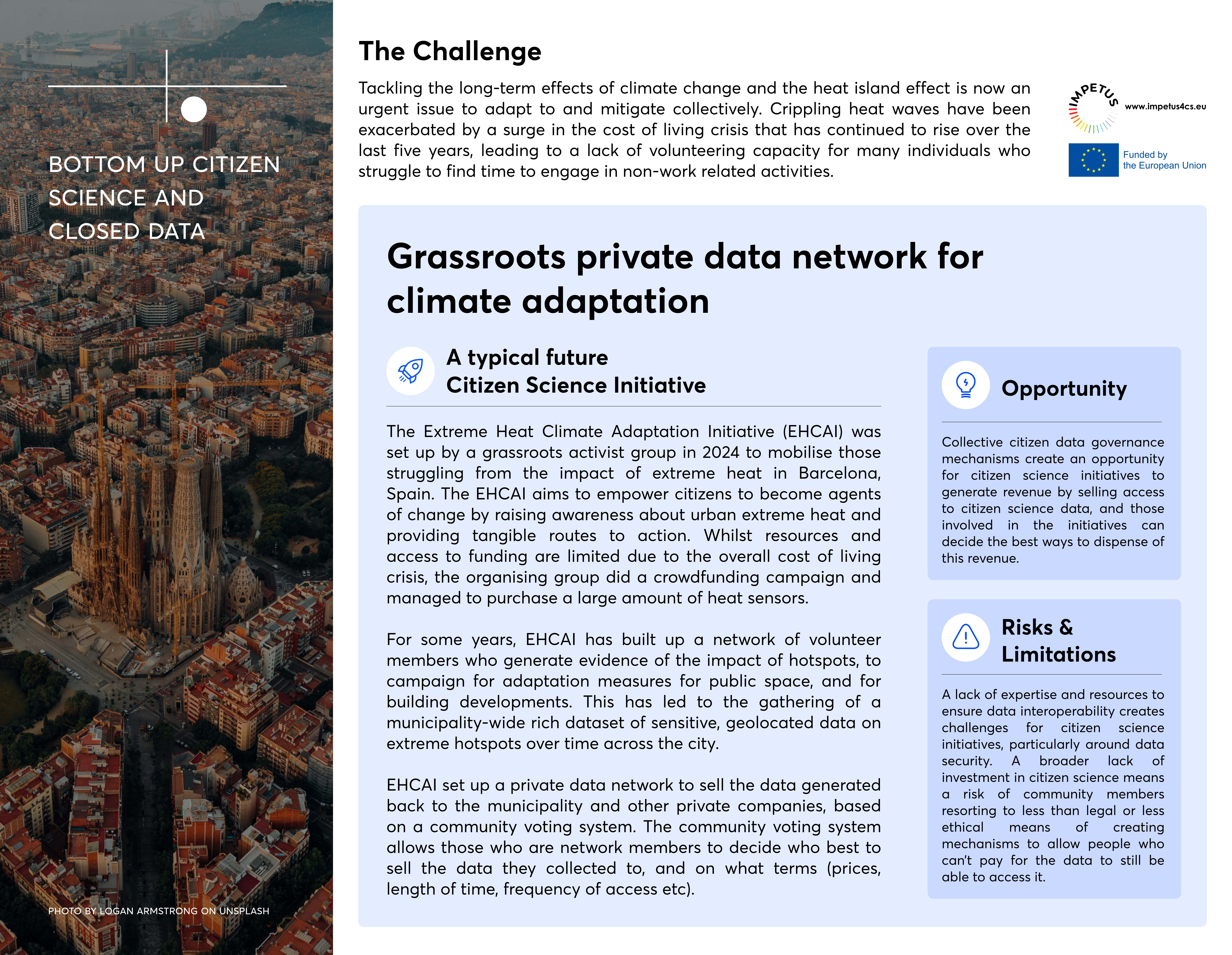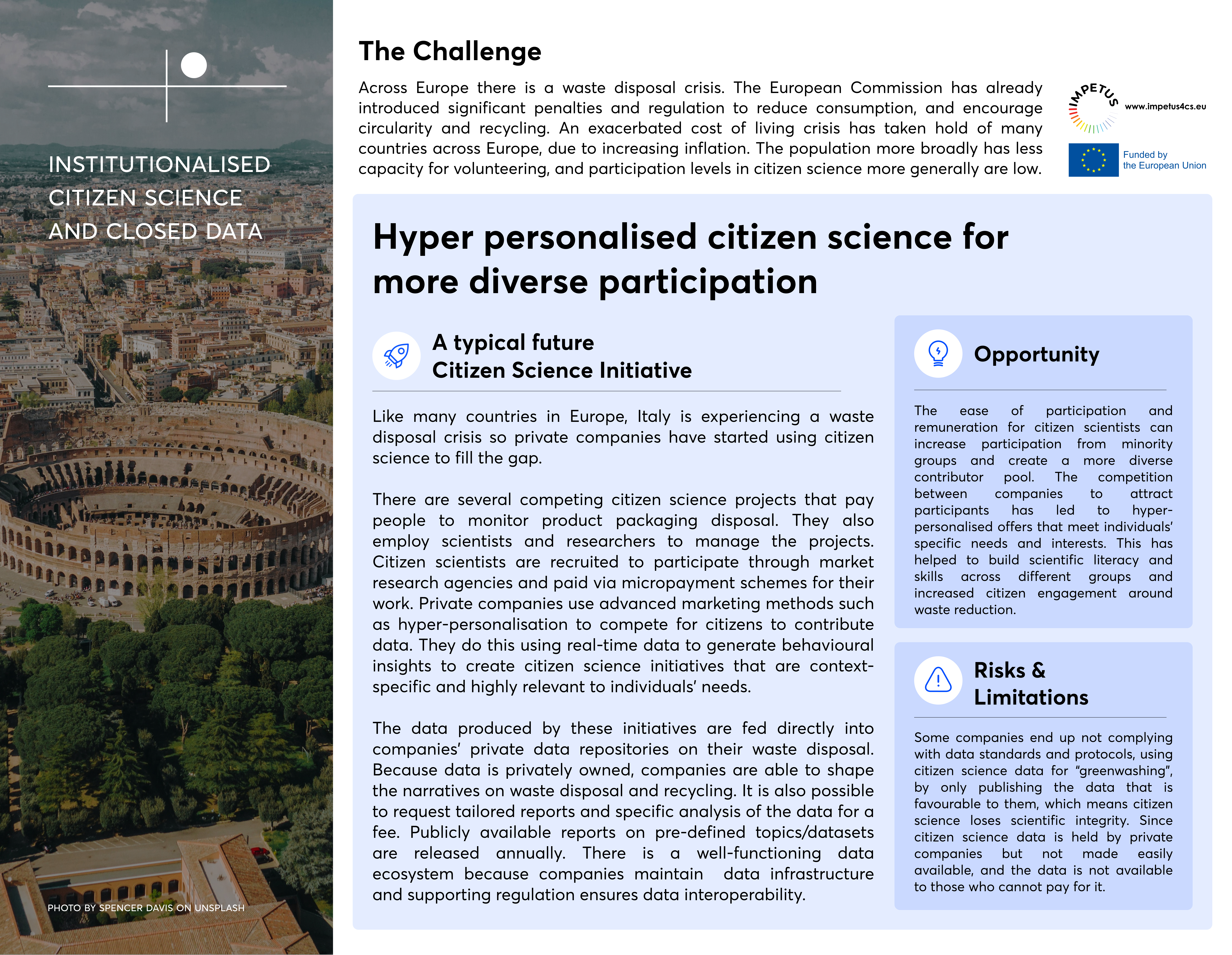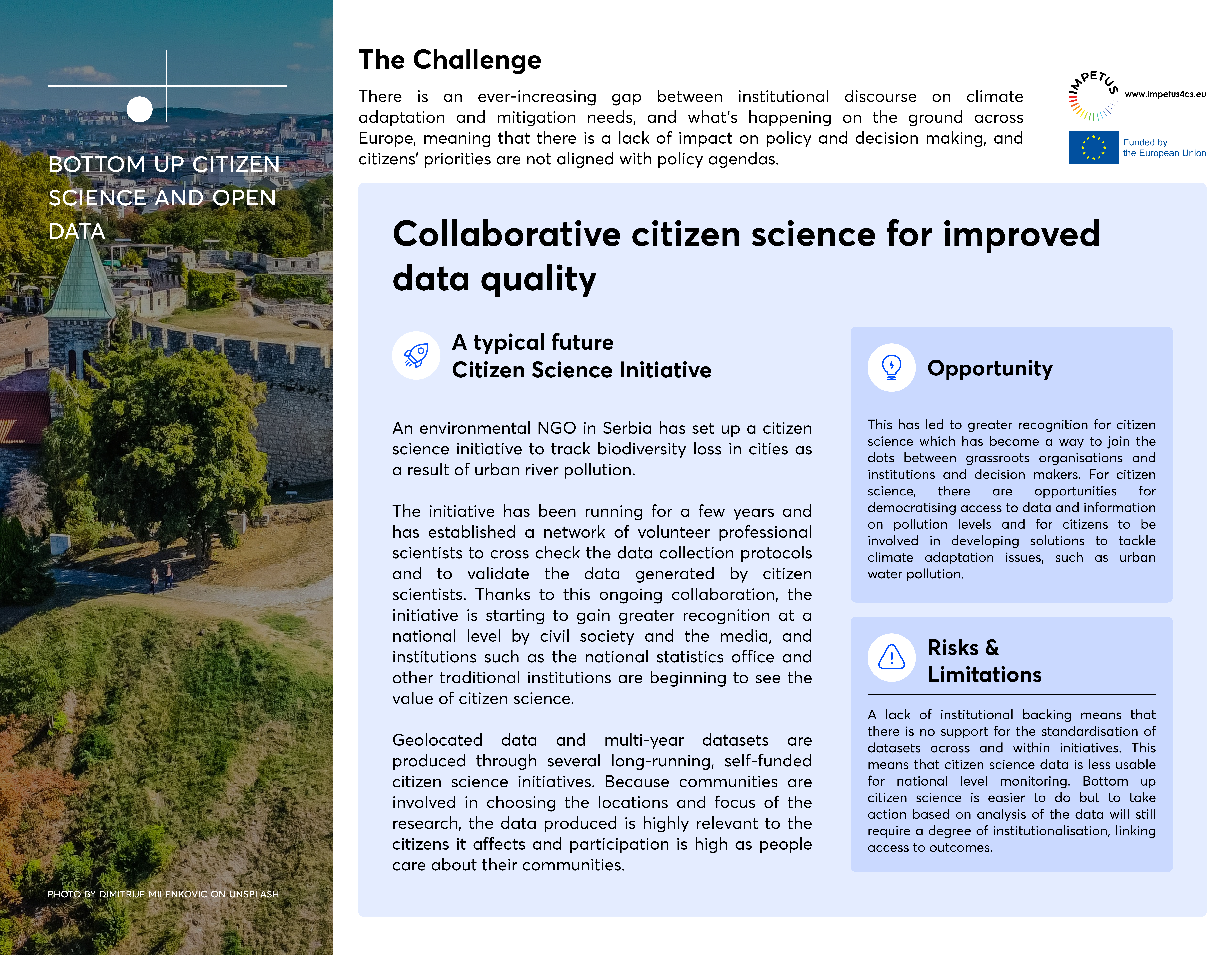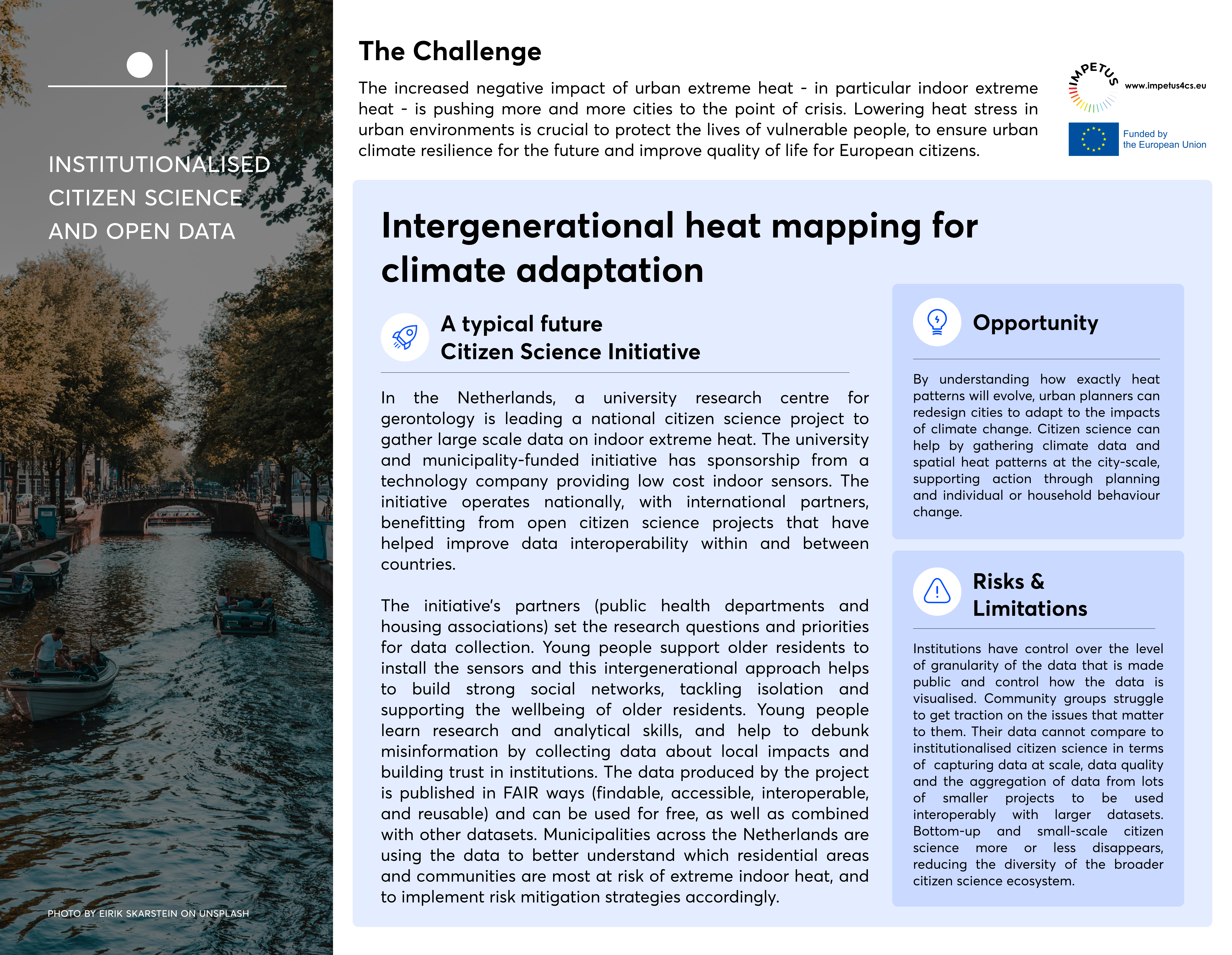Citizen Science 2030: Potential Future Scenarios for the Path Ahead
As part of the IMPETUS project, our accelerator programme will support 125 citizen science initiatives. Our goal is to ensure their impact extends far beyond the projects themselves—laying the groundwork for future endeavours and strengthening the wider citizen science ecosystem.
Citizen science is not a new idea, but it has grown and transformed dramatically over the past decade. Once largely centred on data collection, it has evolved into a truly collaborative research practice. Today, people from all walks of life can meaningfully shape and lead research that matters to them, across diverse areas of science and innovation.
Through the IMPETUS open calls, we have seen first-hand the remarkable variety of citizen science projects and their potential to reshape how research is done. Yet, this is still only the beginning. The field is dynamic and fast-changing, and its future trajectory remains an exciting question.
Our partners at Nesta UK have been exploring these possibilities in depth—tracking emerging trends in citizen science and developing insights into where it might be headed. They have outlined four desirable scenarios for 2030, along with practical resources to help researchers, practitioners, and policymakers reflect on future opportunities, challenges, and risks.
We invite you to explore these scenarios and consider what the future of citizen science might look like. You can also learn more about Nesta’s work in shaping these foresights here.






